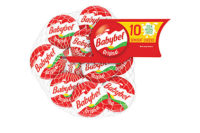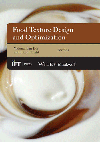FDA recently made a comment to a media outlet indicating that products containing high fructose corn syrup (HFCS) can no longer be considered natural.
FDA recently made a comment to a media outlet indicating that products containing high fructose corn syrup (HFCS) can no longer be considered natural. In doing so, the agency not only created a new set of circumstances for manufacturers of all kinds of food products including ice cream, flavored milk and fruit flavored drinks, but it also opened up a new can of worms around the old argument of how the food industry defines the term “natural.” This statement, and any further action from FDA on the matter would also have a huge impact on soft drink makers, who have recently begun using the term “natural” on products made with HFCS.
In responding to questions from FoodNavigator-USA.com, the agency reportedly cited the use of synthetic fixing agents in the enzyme preparation as the core reason why it would not find HFCS to be consistent with its policies regarding the use of the term natural.
Most dairy processors are well acquainted with HFCS as a highly-functional, relatively inexpensive sweetener derived from corn. While food scientists and nutritionists will argue over and over again that sugar is sugar, consumers have developed bias about high fructose corn syrup. Because it is highly processed and because it is somewhat pervasive, HFCS has become a favorite scapegoat of today’s more skeptical consumers.
Among producers of organic products, there is often a prohibition against HFCS in favor of regular sugar, although one ingredient company sells organic high-fructose corn syrup.
And it’s not just consumers and organic food companies who have sounded the alarm about HFCS.
Several years ago, George Bray, principal investigator of the Diabetes Prevention Program at Louisiana State University Medical Center told the International Congress on Obesity that in 1980, just after HFCS was introduced in mass quantities, relatively stable obesity rates began to climb. By 2000, they had doubled. But Bray and associates have since backed down a bit on their assertions that HFCS is the main culprit in obesity.
The sugar and corn lobbies, and some food manufacturers, are all tugging at FDA’s skirts asking that it provide a detailed definition of the term “natural,” but FDA says it will not give any formal reply to petitioners who have asked for a definition. One agency representative was recently quoted in an article on FoodNavigator-USA.com, as saying that this was not an important issue for consumers.
I would certainly take issue with that opinion. I would also point out that this will indeed be an important issue for dairy processors. Consider that the industry has only recently completed a major cooperative initiative aimed at reformulating flavored milk to meet new school nutrition guidelines.
The guidelines for reformulating those products, which make up a major share, in some cases the majority, of the milk sold in schools, allow for the use of HFCS. Now the FDA will no longer consider those products natural.
I’m generally of the opinion that the day has long passed since an FDA definition of natural was needed. Whole Foods Market, and retailers like it are already deciding what natural means, and taking cues from their customers. But one would hope that FDA could at least clarify its position on this issue. Meanwhile, dairy processors may need to look at sweeteners other than HFCS, for products they want to be able to position as natural.
Stay tuned.
Stay ahead of the curve. Unlock a dose of cutting-edge insights.
Receive our premium content directly to your inbox.
SIGN-UP TODAYCopyright ©2024. All Rights Reserved BNP Media.
Design, CMS, Hosting & Web Development :: ePublishing


